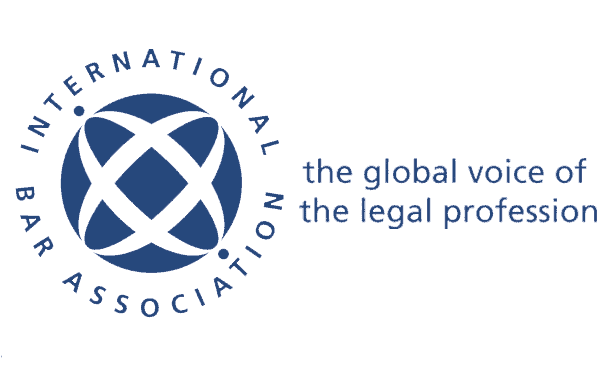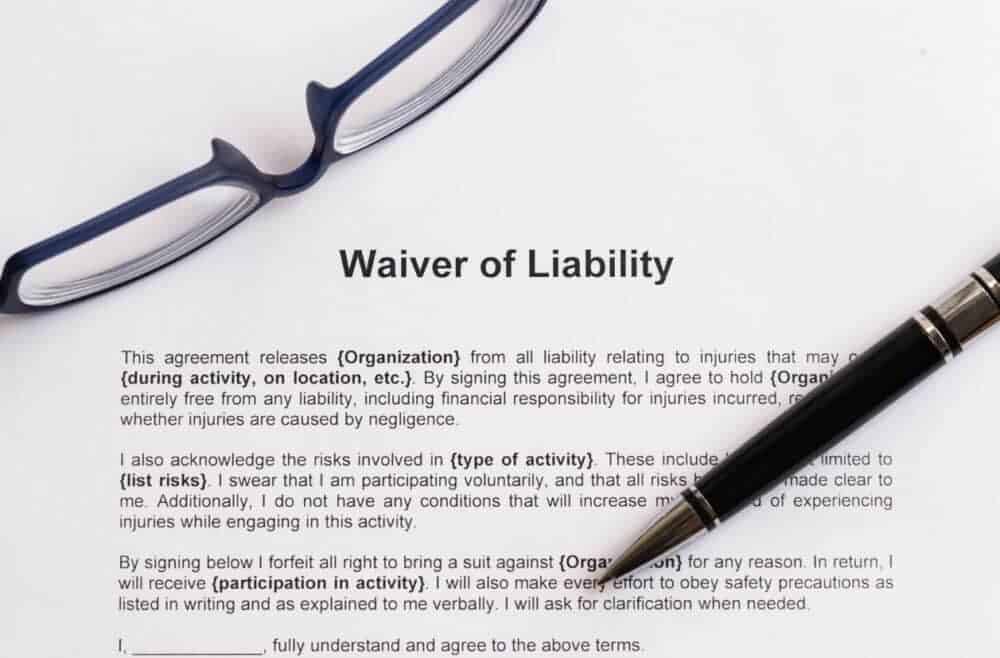How to set up a Dutch BV company
Foreign entrepreneurs and international companies starting new activities in the Netherlands, often set up a Dutch BV company. To incorporate limited liability companies (LLC), in Dutch ‘’Besloten Vennootschap’’ (B.V.)
The Netherlands BV company is similar to the English Ltd. or The German UG company. The Netherlands BV is also the most common type of company structure for establishing a holding company in the Netherlands.v neth
Main traits of the Dutch BV:
- A minimum share capital of €1
- The shareholder is liable only for the amount paid as share capital
- The issuing or transferring of shares requires permission from the shareholder(s)
- The shareholders are registered in the Dutch company register
- A foreign company, local company or natural person may be the shareholder or director of the Dutch BV
- Amendments to the Dutch Company Law have made it much simpler to incorporate a Netherlands BV, reducing the cost of a company formation in Holland greatly.
Requirements to set up Dutch BV
For Opening a BV in the Netherlands, The Dutch BV may have founding members which are (foreign) companies or individuals. The Dutch Company Law allows the newly set up Netherlands BV to be formed with one or more director(s) who may be the shareholder(s) as well. The main advantage of a Dutch BV company, as opposed to the Dutch NV company, is the minimum share capital of €1. Most entrepreneurs however, opt for a share capital of €100. (100 shares of €1)
The first financial year of the company may be an extended year, for example: If you start a business on 10-10-2023, your first fiscal year may be from 10-10-2023 until 31-12-2024.
The main requirement to set up a Netherlands BV or Dutch limited liability company is to have a local Netherlands business address. How to form a company in the Netherlands.
The main steps of registering a Dutch BV
A public notary will draft the articles of association. The official documents in Dutch should contain information on the management board, shareholders, the companies business activity, the share capital and registration address. After drafting the articles of association and the formation deed, the procedure for registration will start. The main steps include:
- Verifying the availability of the company name, and reserving the name
- Collecting due diligence documentation to sent to the incorporation agent
- Submitting the notarized statutory documents and deed of incorporation
- Registering in the commercial registry of the Netherlands
- Registering with the tax authorities
- Open a bank account and deposit the company capital
- Commence of business operations
Bank account opening for Dutch BV
It is necessary for a BV in The Netherlands to have a corporate bank account. The bank account may be set up after the company is formed. After the bank is incorporated, the company capital may be transferred. The bank account is necessary to perform day to day business activities and for the share capital deposit. It is recommended to set up a Netherlands BV company to obtain a Dutch bank account. In many cases, the company bank account can be opened remotely.

VAT Registration
It is highly recommended for most businesses to perform a VAT registration. With an active VAT number, the company does not need to charge any VAT for transactions between European member states. As well as the VAT paid in the costs of the businesses (rent, purchases of stock and inventory) may be claimed back by the company.
Dutch BV business permits
Certain company activities need permits or licenses granted by the government or supervising authority. In most cases the licenses can be arranged easily, the most difficult licenses are in the financial services or payment industry.
- Financial licenses for payment processing companies, investment firms or financial services
- Employment agencies need to be licensed with a branch organisation
- Crypto platforms may not require licensing, depending on the exact business activity
- Import and export companies will require an EORI registration, this can be accomplished within 1-2 weeks
- Local bars and hotels require a local municipality license to perform the business activity
- Certain type of shops are regulated, such as night stores
- Food and cosmetics businesses may be subject to licensing to comply with the health codes and consumer protection
- Transport companies
The Netherlands ”Flex BV”
Because of the popularity in other countries with limited companies, the Dutch government in 2012 decided to simplify the regulations on the Dutch BV. The current BV Netherlands companies are known by law as ”Flex BV”, standing for flexible. The flex BV has the same status and traits as an older regular BV company, however, it is more easy to form a Flex BV. For example, the required capital for the Flex BV is €1. Before the regulations were reformed, the required capital was €18.000.
Advantages of a Netherlands BV company
The Netherlands BV is a very flexible and competitive entity. It has many advantages and can be used for different purposes. The most popular uses are:
- BV companies are able to function as a director and shareholder of other companies
- The BV company may be held as a subsidiary by a foreign company. It is allowed to have a foreign company as a director
- The BV company is very reputable in international trade.
- The Dutch BV has one of the lowest tax rates in Western Europe
- It gives access to the European markets
- A BV may be formed within a few days, with little to no restrictions
- A BV may be formed and operated by non-resident persons

Dutch BV taxation
The Netherlands has over a 100 international tax treaties, this is more than any other nation in the world. The BV is deemed as a resident in the Netherlands by law, however, a local business address is needed. Companies which are registered for taxation have to pay corporate tax on the profits, the corporate tax rates range from 19% up to €200.000 profit, and 25,8% for the amounts above that. In the coming years, the Netherlands is planning to lower the corporate tax rates to appeal to more foreign companies.
Profits taxation
2024: 19% below €200.000, 25,8% above
The VAT rates are 9% for the lower rate and 21% for the upper VAT rate. The rates depend on the activities on which the VAT is charged. (9% VAT for the lower VAT rate is valid since 01-01-2019). Netherlands based companies need to pay tax on their worldwide income, nonresident companies only need to pay tax on certain incomes.
Legal obligations for setting up a Dutch limited company
Publication of the annual statements of the Dutch LLC is limited to a few requirements. Such as: The notary incorporation deed, the share capital and details on the directors and board members. The incorporation deed has information on internal processes and decision-making. Such as, the responsibilities of the directors, the rights and obligations of the shareholders. The shareholders may vote to appoint the director(s) of the company. Larger corporations may have board members. The majority shareholder(s) and directors are registered to be affiliated to the company, in the Chamber of Commerce.
Assisting entrepreneurs with compliance
Intercompany Solutions has specialized in assisting and setting up BV Netherlands for foreign entrepreneurs. Possible services are: Appointing a corporate secretary who manages activities such as acquiring a local bank account, apply for an EORI number or maintaining the company documents. The director(s) and/or board of the company are responsible for fulfilling the tax obligations and maintaining of proper accounting. The Netherlands BV company needs to file VAT tax returns, either quarterly or monthly.
Annual reporting requirements for Dutch BV’s
The Dutch B.V. is obligated to prepare annual financial statements for the shareholders. The annual statements have to be prepared according to the rules written in the civil code of the Dutch company law. Annually the company is required to publish a limited balance sheet, this is usually done by your account. Strict auditing requirements are necessary for companies who have over 12.000.000 EUR turnover per year, a balance sheet of over 6.000.000 EUR or more than 50 employees. The publication of the annual statement needs to be made at the Dutch Company Register. This publication needs to be made within 13 months after the end of the year. The director(s) can be held liable in case of late publication. Every year, the shareholders should hold a general meeting. The purpose of the meeting is to discuss the annual report and review the management’s performance. The meeting between privately owned companies is generally an informal event, as shareholders are quite familiar with each other and do not see a need to keep official notes of the meeting.

About Intercompany Solutions
Operating since 2017, our company has helped thousands of clients from 50+ countries to set up their businesses in the Netherlands. Our clients range from small business owners opening their first company, to multinationals opening a subsidiary in the Netherlands. Our experience with international entrepreneurs has allowed us to perfectly adjust our processes in order to ensure the successful establishment of your company. Customer satisfaction is guaranteed for all the services we offer. Our scope of expertise:
Associations and memberships
We are constantly improving our standards of quality to deliver impeccable services.



Media
Intercompany Solutions CEO Bjorn Wagemakers and client Brian Mckenzie are featured in a report for The National (CBC News) ‘Dutch Economy braces for the worst with Brexit’, in a visit to our notary public on 12 February 2019.




BV Incorporation FAQ
Can I incorporate a BV remotely?
Yes. Foreign entrepreneurs may incorporate a Dutch limited company without having to visit The Netherlands, this can be done by granting a power of attorney to our staff. A slightly different procedure is conducted in this case. Setting up a Dutch BV company is one of the many advantages of the Netherlands
Can anyone establish a Dutch company no matter where they are located?
Yes. The Netherlands is a country open to foreign investors. Any person of any nationality may become a shareholder of a Dutch Limited Company and set up a Dutch BV.
Can I open Dutch Bank Account?
Certainly, our company will guide you in opening a Dutch bank account. In many cases the bank account can be opened even remotely!
What is the cost of opening a BV in The Netherlands?
An incorporation is possible from €1.000, depending on your requirements. If you are looking to open a bank account or if you want to have assistance with VAT application and accounting services.
Do I need to speak the language?
No, our incorporation agents will make sure you can go through all procedures in English, Italian or Spanish. Dutch officials will be able to communicate in English, and often in German and French as well.
Can I apply for residency in the Netherlands?
The first step in applying for residency as a Non-EU entrepreneur is to set up a company in the Netherlands, afterwards an application may be made with the Dutch immigration services. Our consultants will be glad to introduce you to our immigration partners.
Do you assist in ongoing company management?
Yes, our a company can assist with our secretarial services, providing assistance for ongoing activity of your newly set up Dutch BV company. Such as tax compliance, accounting and secretarial services.
Our Dutch incorporation agents can help you start a business in the Netherlands.
Starting a Dutch Foundation
Thanks to the Netherlands’ loose government regulations and minimal taxation burdens, as well as their fair international codes, the Netherlands, provides entrepreneurs with a unique location to build a prosperous enterprise. If, however, one is unaware of the appropriate steps needed to found a Dutch foundation, they may easily breach the country’s guidelines and procedures. In this article, we will detail all necessary topics to know prior starting a foundation in the Netherlands.
What is a foundation?
A foundation is a private legal entity, not associated with the government, that has no members and in which the revenues are used for non-profit purposes, such as a charity fund.
Unlike other Dutch companies, foundations within the Netherlands do not have to follow the regulations of the Dutch Commercial Code. They belong to the Civil Code. The Civil Code provides foundations with the opportunity to be recognized as a separate, legal identity, distinct from its founder(s). When under the Civil Code, no shareholders can be acquired, and profits must be used for non-commercial purposes if registered as a Special Purpose Entity.
Read here on other company types in the Netherlands.

Taxation on foundations
Dutch foundations are a peculiar organization when it comes to Dutch tax regulations. While they are an enterprise, they differ from businesses as their profits aren’t used to accumulate personal wealth, but rather to give back to the community in some way. This is the reason why the Netherlands provides foundations with options to choose how their taxes will be mandated. The options are broken down into two paths: special purpose entity or commercial registration.
Special Purpose Entity
Special purpose entity, or SPE, for short, applies when a foundation strictly agrees to engage in no commercial commerce in regards to their enterprise. While they are still allowed to make a profit and use the money to fund overhead costs such employee salaries, there are many restrictions on how their net profits are spent. This is to avoid companies claiming they are non-for-profit organizations to get a tax deduction while still earning profits and not donating the funds.
Commercial Registration
Commercial registration can be achieved for foundations. This option is for foundations who want to allocate a significant portion of their money for non-profit purposes but still would like to be involved in retail service applications. Since commercial foundations engage in commerce, they face Dutch taxation, although it is still generally less than other corporate entities.
The Dutch STAK foundation
The Dutch STAK is a legal entity that differs from a regular foundation. The STAK foundation is formed to hold the shares of a private company. By using the STAK to hold the shares, you are able to separate the economic ownership from the voting rights. This feature of the STAK could be useful for estate planning, where the heirs can receive economic benefits, without having voting power in the company.
If you would like to receive more information on Dutch Foundations, please contact our local incorporation agents.
There are several types of legal entities (rechtsvormen) that entrepreneurs can establish in the Netherlands. They can be classified into two groups: Incorporated (compulsory legal form) and unincorporated (legal form is not mandatory).
Our Netherlands-based company formation agents can assist you in selecting the correct company type for your business.
Incorporated business structures (Rechtvorm met rechtspersoonlijkheid)
Incorporated businesses must have a legal form (i.e. a corporate personality or legal entity) represented by a deed prepared by a notary. This form protects the owner from potential debts incurred by the company.
In the Netherlands there are five types of incorporated structures:
1. The Dutch Private Limited Company (BV)
Dutch: Besloten Vennootschap
Private limited liability companies are the most common form of companies within the Netherlands. It is similar to the German GmBH, the American LLC, or the English’s Ltd. Limited liability companies are businesses in which equity is divided by shares. The private limited company Dutch BV is commonly employed by entrepreneurs investing in the Netherlands. The Dutch company act is renewed, therefore a Dutch BV no longer requires a minimum capital deposit. One shareholder is the minimum requirement for a Dutch BV and the liability is limited to the capital deposited. The shares of the Dutch BV are transferable by notary deed.
2. The Dutch Public Company (NV)
Dutch: Naamloze Vennootschap
The Netherlands public company or NV is the most popular legal form for companies who may be listed in the public Stock Exchange. The capital requirement for the NV is 45,000 euro. Public companies are businesses in which a portion of the stock or share is available on the Dutch stock exchange for members of the general population. They can invest capital in order to garner shares in the business. The characteristic of the NV company is that shares are freely tradeable, as compared to the Dutch BV where the shares are privately tradeable and involve a notary deed. The current largest public Dutch company title belongs to the oil industry giant, Royal Dutch Shell.

The Dutch Private Foundations
Dutch: Stichting
A Dutch foundation is a legal private entity with the sole intent to benefit a certain cause, whether for personal profit, social causes or charity. The process of incorporation is fairly straightforward and ideal for charities, small family businesses, and estate planning. The Dutch Stichting may be used to minimize tax.
1. STAK Foundation
Dutch: Stichting Administratiekantoor
The Stak Foundation is commonly used for separating the economic ownership and the control of the company by certifying the shares. The certificates may be granted to an heir, while the board of the foundation is in charge of the management of the entity. This results in unique tax planning capabilities
2. Charitable Foundations
Dutch: ideële organisatie
The Dutch law differentiates between two foundations with specific purposes, the ANBI and the SBBI. The ANBI is commonly used for general purpose charitable foundations and may be granted by the tax authorities to charitable foundations (this may result in significant tax advantages for the ANBI and the donators). The SBBI is a foundation with the purpose of unifying members in a certain goal, such as an orchestra.
3. The Dutch Associations and Cooperatives
Dutch: Vereniging en coöperatie
Associations are usually established as non-profit entities. Most local sports associations use this type of entity, the members pay a contribution to fund the associations’ collective costs. Cooperatives are characterized as associations which pay directly to the members. A cooperative could be a group of small shops in the same neighborhood making a collective marketing effort.
Notary services
All legal entities established for the purpose of doing business are set up through a Latin notary (notaris). The notary prepares a deed and registers the entity at the Commercial Chamber (KvK). It should be noted that incorporated structures usually pay additional taxes. A notary can assist in making deeds for company incorporations. To change your current company type we recommend to seek the guidance of a professional corporate agent.

Liability of incorporated business forms
All incorporated businesses have a common defining aspect: when you set up a firm as a legal person or entity your private property cannot be seized to cover any debts of the business. In case of negligence, however, you may be considered personally accountable. You need to be fully aware of the responsibilities you are taking on by registering an incorporated entity. If you do not fulfill your tax and administrative obligations, you may be fined by the Tax Office (Belastingdienst).
Taxation of incorporated entities
In the Netherlands businesses having a registered legal entity are subject to different taxes in comparison to unincorporated structure or individuals.
Corporate tax A distinct requirement for all legal form businesses is the payment of corporate tax (venootschapsbelasting) which is a type of income tax levied on profits. In some cases, associations and foundations are not liable for corporate tax. The rate of corporate tax is lower than that of income tax. This is one of the major factors for entrepreneurs to set up incorporated businesses such as private limited companies. The administration, however, is rather complex and yearly costs may be higher. Usually, a significant turnover is necessary to compensate for these expenses.
Corporate tax rates in the Netherlands The corporate tax for taxable amounts up to or equal to 200 000 EUR is 19% and 25,8% for amounts higher than 200 000 EUR.
Tax on dividends Private and public limited companies are liable for dividend tax (or dividendbelasting in Dutch) at a rate of 15% on profits paid to the shareholders. Then the shareholders must pay 25% tax on the received amount.
Yearly financial statements Businesses with legal forms are obliged to prepare and submit yearly financial accounts and reports to the Tax Office and the Chamber of Commerce.
Profits taxation
2024: 19% below €200.000, 25,8% above
Unincorporated business structures (Rechtvorm zonder rechtspersoonlijkheid)
Unincorporated business structures are not required to have a legal form (e.g. notarial deed). The private assets of the owners, however, can be seized to cover outstanding debts of the business. Such businesses can be established at the Commercial Chamber without the participation of a Latin notary.
1. Taxation of unincorporated businesses
Businesses without a legal form need to pay VAT, income tax and payroll tax (if they have employees). Several tax incentives are available. In contrast to incorporated companies, businesses without a legal form do not owe corporate taxes.
2. Liability of unincorporated business owners
The main disadvantage of having a business without a legal form is the lack of distinction between business and private property. If the company has outstanding debts, the debtors can claim the owner’s personal assets. Therefore, in case of bankruptcy of the business, the owner goes personally bankrupt, if he/she does not have sufficient assets to cover the debts. The assets of the owner’s spouse can also be seized, if their marital property is common. In order to avoid this problem, spouses are advised to change their nuptial agreements.

Business structures without legal form
In the Netherlands there are four types of unincorporated business structures:
1. The Dutch Sole Proprietorship
Dutch: Eenmanszaak
The Dutch sole proprietorship is the business form most independent workers choose for. The tax filings for the one-man-company are the same filing as for natural persons. The business’ tax number is the social security number of the owner. If the company has any debts, the owner is personally liable, therefore many entrepreneurs prefer to establish a limited liability company to mitigate the entrepreneurial risk.
2. The Dutch Partnerships
Partnerships have two shareholders, or a group of investors equally liable and responsible for the actions or repercussions carried out by the enterprise. In the Netherlands, there are two categories of these partnerships, private and public. The partners of a general partnership can be jointly held responsible for the full liabilities of the partnership, while severally accountability may apply under normal circumstances regarding the company’s obligations and debts. The limited partnerships in the Netherlands consist of a general partner and a silent one.
The General Partnership (Dutch: Vennootschap onder firma) Private partnerships are when two or more individuals hold the same amount of equity stake in the corporation and therefore are equally liable for the actions, debt, and litigation accrued by the company.
The Professional Partnership (Dutch: Maatschap) The professional partnership includes two or more partners, each of which is responsible for his or her own claims. The professional partnership is suitable for dentists, lawyers, accountants, and other self-employed occupations.
The Limited Partnership (CV) (Dutch: Commanditaire vennootschap) The Dutch CV consists of 2 or more partners. One of the partners assumes the role of the general partner who will manage the company. The general partner is not limited in liability. The other partner(s) is referred to as a ”silent partner”. The silent partner is limited only to his capital contribution. The silent partner may not be involved in the management of the company.
Are you interested in establishing a business in the Netherlands? Our incorporation agents can guide you throughout the whole process!








